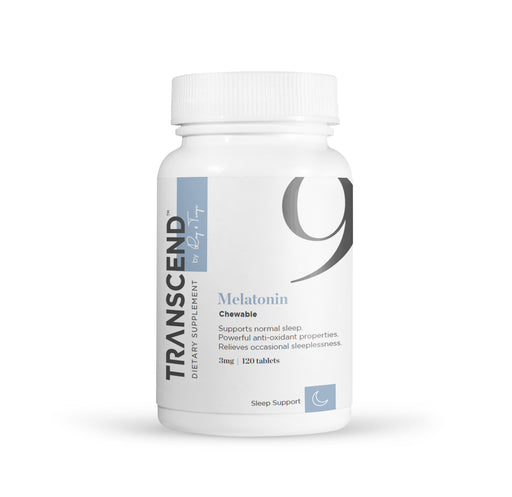
Melatonin
Found to extend the life span of laboratory animals 25 percent4,5,6 Displays powerful anti-oxidant properties7 Shown to stimulate the immune sy...
View full details
Over time, neuroscientists have discovered a range of positive health benefits connected to sleep, including boosted immune health, memory, and mood.
We also know that good sleep is a critical restorative activity that rejuvenates our bodies and minds. In our high-stress world, quality rest is crucial.
But what can we do to make sure our sleep is truly beneficial? Enter “sleep hygiene” — the process of preparing the mind and body for sleep each night. Proper sleep hygiene can make our sleep more restful and improve our overall health.
Sleep hygiene means creating a bedroom environment and daily routines that promote consistent, restful sleep. Just like we wash our bodies and brush our teeth every day, we must develop healthy habits that promote restful sleep.
These habits include maintaining a consistent sleep schedule, making your bedroom comfortable and free of distractions, following a wind-down routine, and building other healthy habits to support better sleep.
Why is sleep hygiene important? Rest is critical for both physical and mental health. Good sleep hygiene is a low-effort habit that can have an outsized impact on our overall health.
What are the signs of poor sleep hygiene? If you often feel like a “zombie” during your wakeful hours, or regularly experience difficulty falling asleep, disturbances during sleep, or a general lack in both sleep quality and quantity, your sleep hygiene could use a boost.
Start by making sleep a priority. After all, it’s an essential aspect of our health. When we choose to stay up past our normal bedtime, we’re effectively making sleep a lower priority than, say, Netflix.
We have to accept sleep as an inherent aspect of leading a healthy lifestyle — the same way we watch what we put in our bodies, we also need to give ourselves the time to rest and recharge.
A solid bedtime routine is a great way to improve your sleep hygiene. Here are a few universal tips for an effective bedtime routine:
Create a bedtime routine that works for you, incorporating relaxation techniques like stretching or meditation that help you prepare your mind for bed.
A bedroom environment that’s conducive to rest is also key. With many of us now spending more time at home, our bedrooms may no longer be the calm retreat we’re used to.
Here are a few ways to build healthy bedroom boundaries to improve your sleep hygiene:
COVID has altered many of our routines, which means we’re working, eating, and watching movies in our bedrooms more than ever. Remind your brain and body what your bed is actually for: sleeping.
There are a host of health habits that improve sleep hygiene, many of which are standard good health practices. Here are a few to adopt right away:
Better sleep hygiene helps us get more restful sleep, allowing our bodies and minds time to rest and replenish. Many positive sleep hygiene habits are also great for our general good health.
Start by prioritizing sleep as an essential component of your overall health and wellness. Focus on creating a bedroom environment that helps you relax, consuming a healthy diet, and maintaining a consistent sleep schedule throughout the week.
Here’s to improved sleep in 2021!

Found to extend the life span of laboratory animals 25 percent4,5,6 Displays powerful anti-oxidant properties7 Shown to stimulate the immune sy...
View full details Sold out
Sold out
A Kurzweil + Grossman Formula Stimulate serotonin production Improve outlook and mood Support healthy sleep patterns Natural formula for a balanc...
View full details
Increased energy Improve mood Fight fatigue Common deficiency Better absorption Vitamin B12 (also called cobalamin) is one of eight water-solu...
View full details
Improve mood Alleviate anxiety Maintain healthy sleeping patterns GABA ( γ-Aminobutyric acid) is the primary inhibitory neurotransmitter in the ...
View full details
Leave a comment